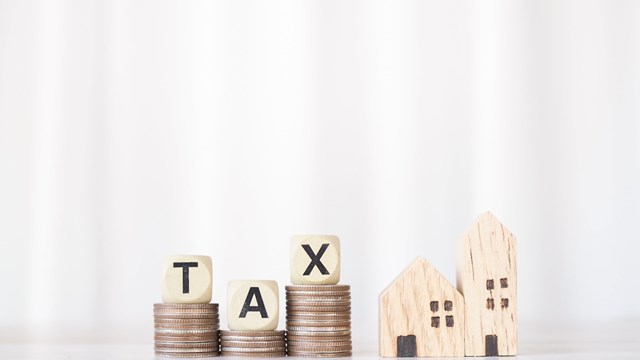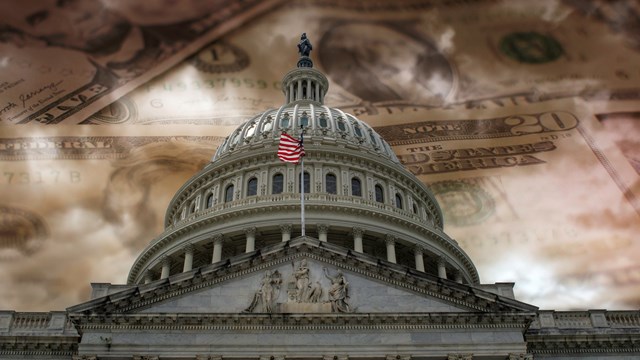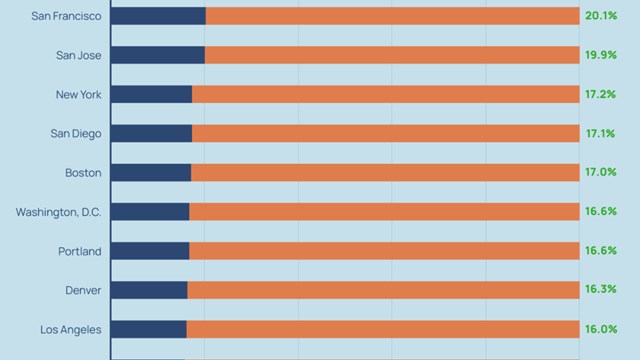Originally proposed in 2014 by Senator Brad Holyman, Senate Bill S44A - or the ‘pied-à-terre tax,’ as it has become known - was introduced to the New York Assembly in January 2019, partly - according to the National Law Review - in response to hedge fund manager Ken Griffin’s record-breaking $238 million condo purchase at 220 Central Park South, the then-latest addition to the multibillionaire’s vast real estate collection.
The annual property tax surcharge was proposed to help subsidize city services, and would apply to one- to three-family second residences worth $5 million or more, as well as condos or cooperative units with assessed values over $300,000. These secondary residences, known by the French term “pieds-à-terre” (literally “feet on the ground”) are typically owned by out-of-towners or suburbanites who want a place in the city to serve as a commuting crash pad or a home base for occasional weekend visits. The National Law Review notes that a large segment of the pied-à-terre market in New York City is considered ‘luxury’ - high-end co-op and condo apartments located in some of the city’s most sought-after neighborhoods.
According to projections in a 2017 NYC Housing and Vacancy Survey, the city’s 75,000 such pieds-à-terre would generate an estimated $650 million from the tax annually— the equivalent of $9 billion in bond revenue. The proposed bill did not pass, however. According to the Law Review, its failure has been attributed to several factors: the cumbersome fashion in which the tax was to be imposed on cooperative apartment buildings, the perceived difficulties in determining whether a unit was a “primary” or “secondary” residence; and finally, strong opposition from the New York real estate industry.
But now that the COVID-19 pandemic and its economic fallout have hit the state with a $14 billion budget deficit—with projections of up to $30 billion by 2022, according to Governor Andrew Cuomo—state legislators are looking to revive the “pied-à-terre” property tax surcharge. In August 2020, Senator Holyman introduced an amendment to Senate Bill S44A that attempts to resolve the co-op taxation issue. The proposed legislation, summarized below, is currently under deliberation by the state legislature. If it passes, Governor Cuomo will be required to cast the final decision to ratify or veto the legislation.
Senate Bill S44A proposes that cities with populations greater than one million be allowed to impose the following tax surcharges on non-primary residences (or at least those that are not the primary residence of at least one owner of the property or dwelling unit; not the primary residence of a parent or child of at least one owner of the property or dwelling unit; or rented on a full-time basis to a tenant or tenants for whom the property or dwelling unit is their primary residence), beginning on July 1, 2021:
One-, two-, or three-family residences with a five-year average market value of $5 million or higher will be subject to a tax of at least 0.5% and up to 4% on the excess market value above $5 million;
Residential real property held in condominium ownership with an assessed value of $300,000 or higher will be subject to a tax of at least 10% and up to 13.5% of the excess assessed value above $300,000; and
Dwelling units in a property held in cooperative ownership with an assessed value attributable to an individual owner’s percentage interest on a per-unit basis of $300,000 or higher will be subject to a tax of at least 10%, and up to 13.5% of the excess assessed value above $300,000. The additional taxes attributable to each owner will be added to the cooperative apartment corporation to the amount of such taxes otherwise payable by or chargeable to such owner.
The Law Review notes that the assessed value which serves as the basis for how second-home co-ops and condos will be taxed is not the same as their market value. “A condo or co-op unit in New York City with an assessed value of $300,000 will equate to a property with a market valuation greater than $300,000,” the outlet indicates. Therefore, “Potential purchasers and existing owners will need to confirm their unit’s assessed value to determine whether the tax will be applicable if the unit is a second residence.”
To view the full text of Senate Bill S44A, visit https://legislation.nysenate.gov/pdf/bills/2019/S44A.







Comments
Leave a Comment